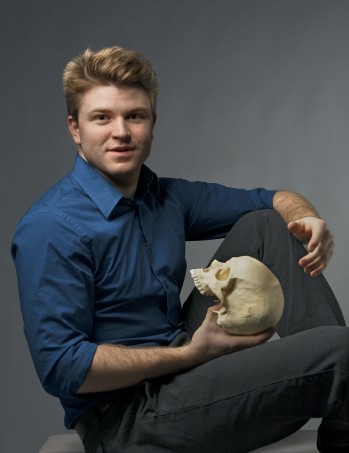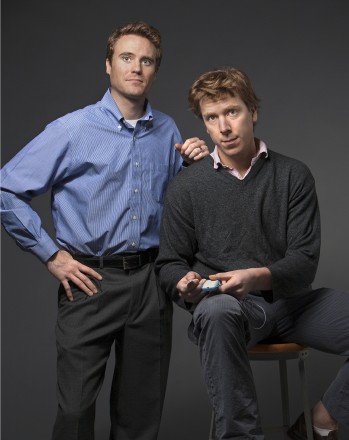COVER STORY

Mark Levatich 10, who graduated in December with degrees in biological and environmental engineering and biological sciences, developed a device that helps surgeons seal holes created during a type of pituitary surgery. See larger image
Nurturing big ideas, continued
Indeed, the Ewing Marion Kauffman Foundation says that more than half of the companies on the Fortune 500 in 2009 were started during a recession or bear market, and seven out of the top 10.
To encourage students to become the entrepreneurs of tomorrow, Cornell offers 45 courses in nearly every school and college, up from only six courses in 1990. Students can also take advantage of 25 student clubs, attend numerous speaker events, become a part of a business incubator, network with successful alumni who return to campus in various roles and seek summer internships focused on small companies.
For the past 25 years, many of these students, both undergraduates and aspiring MBAs, have been taught to think like entrepreneurs by David BenDaniel, the Don and Margi Berens Professor of Entrepreneurship at the Johnson School. "Entrepreneurship is a way of thinking, of planning for the future and taking responsibility for oneself," he says.
Nearly everyone can learn entrepreneurial skills, no matter what their career path, BenDaniel says, and over the years, many of BenDaniel's more than 5,000 students have written to say that his classes gave them self-confidence. "In my class, they learn to believe in themselves," he says -- the essential mindset for anyone who challenges the marketplace.
Taking the longer view
The guiding principle at Cornell is experiential learning. "Students at Cornell are treated to a high level of practical exposure to real startup business issues," notes Zach Shulman, ILR '87, Law '90, director of Entrepreneurship@Johnson. "In any given week, students can go to a number of events and really dig in."

Bryant Guffey MBA 10, left, and Ph.D. student George Lewis Jr., are developing a miniature ultrasound therapy device, using technology licensed from Cornell, that helps patients with pain management. See larger image
"At Cornell, we take a longer view of when entrepreneurial opportunities may happen for a student," says Deborah Streeter, The Bruce F. Failing Sr. Professor of Personal Enterprise and Small Business Management in the Department of Applied Economics and Management. "Sometimes it will happen when they're at college or even before. Sometimes it will be within a bigger company or a governmental organization. And sometimes it will be 15 or 20 years down the road.
"The best way to prepare students is to focus on the underlying skills that entrepreneurs need -- opportunity recognition, market validation and basic tools like business planning."
The main engines of the growth of entrepreneurship across campus are the commitment of the deans of the nine participating colleges and schools that make up Entrepreneurship@Cornell, along with active alumni and faculty who form the core of the E@C program.
One clear recent indication of this growth has been the fast emergence of eLab, the undergraduate business incubator, started by Student Agencies and E@C in 2008. It provides a physical office space, alumni mentors and business assistance to undergrads and also offers seminars open to all Cornell students, focusing on business planning and marketing.
Some Cornell students come to campus already sold on entrepreneurship. They're here looking for a great business idea or want to learn the skills they need to run their own enterprise. Others may hear about an interesting entrepreneurship class, listen to an alumni presentation or join a club and find themselves bitten by the entrepreneurship bug.